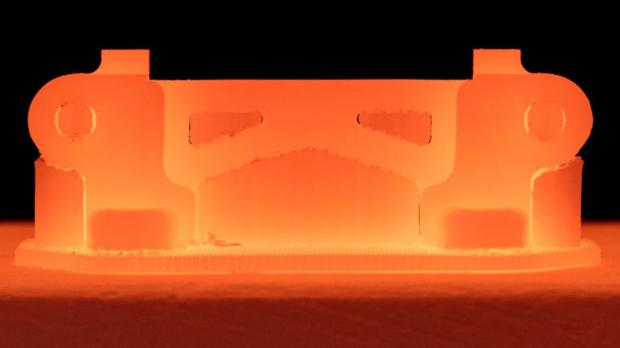
Breaking News
 RAY DALIO SAYS THE MONETARY ORDER IS BREAKING DOWN...
RAY DALIO SAYS THE MONETARY ORDER IS BREAKING DOWN...
 2026 - The Year US Hegemony Ends?
2026 - The Year US Hegemony Ends?
 Censorship Lawsuit Big Tech Hoped Wouldn't Happen
Censorship Lawsuit Big Tech Hoped Wouldn't Happen
 House Oversight Panel votes to advance contempt resolutions against the Clintons
House Oversight Panel votes to advance contempt resolutions against the Clintons
Top Tech News
 The day of the tactical laser weapon arrives
The day of the tactical laser weapon arrives
 'ELITE': The Palantir App ICE Uses to Find Neighborhoods to Raid
'ELITE': The Palantir App ICE Uses to Find Neighborhoods to Raid
 Solar Just Took a Huge Leap Forward!- CallSun 215 Anti Shade Panel
Solar Just Took a Huge Leap Forward!- CallSun 215 Anti Shade Panel
 XAI Grok 4.20 and OpenAI GPT 5.2 Are Solving Significant Previously Unsolved Math Proofs
XAI Grok 4.20 and OpenAI GPT 5.2 Are Solving Significant Previously Unsolved Math Proofs
 Watch: World's fastest drone hits 408 mph to reclaim speed record
Watch: World's fastest drone hits 408 mph to reclaim speed record
 Ukrainian robot soldier holds off Russian forces by itself in six-week battle
Ukrainian robot soldier holds off Russian forces by itself in six-week battle
 NASA announces strongest evidence yet for ancient life on Mars
NASA announces strongest evidence yet for ancient life on Mars
 Caltech has successfully demonstrated wireless energy transfer...
Caltech has successfully demonstrated wireless energy transfer...
 The TZLA Plasma Files: The Secret Health Sovereignty Tech That Uncle Trump And The CIA Tried To Bury
The TZLA Plasma Files: The Secret Health Sovereignty Tech That Uncle Trump And The CIA Tried To Bury
The most read New Atlas stories of 2017

This year our top science and technology news stories ranged from ancient death traps and otherworldly weapons to anti-aging breakthroughs and mega-aircraft. Read on to see what captured the imagination of you, our readers, in 2017.
100x faster, 10x cheaper: 3D metal printing is about to go mainstream
Desktop Metal – remember the name. This Massachussetts company is preparing to turn manufacturing on its head, with a 3D metal printing system that's so much faster, safer and cheaper than existing systems that it's going to compete with traditional mass manufacturing processes.
Simulation suggests 68 percent of the universe may not actually exist
According to the Lambda Cold Dark Matter (Lambda-CDM) model, which is the current accepted standard for how the universe began and evolved, the ordinary matter we encounter every day only makes up around five percent of the universe's density, with dark matter comprising 27 percent, and the remaining 68 percent made up of dark energy, a so-far theoretical force driving the expansion of the universe. But a new study has questioned whether dark energy exists at all, citing computer simulations that found that by accounting for the changing structure of the cosmos, the gap in the theory, which dark energy was proposed to fill, vanishes.

 Nano Nuclear Enters The Asian Market
Nano Nuclear Enters The Asian Market


